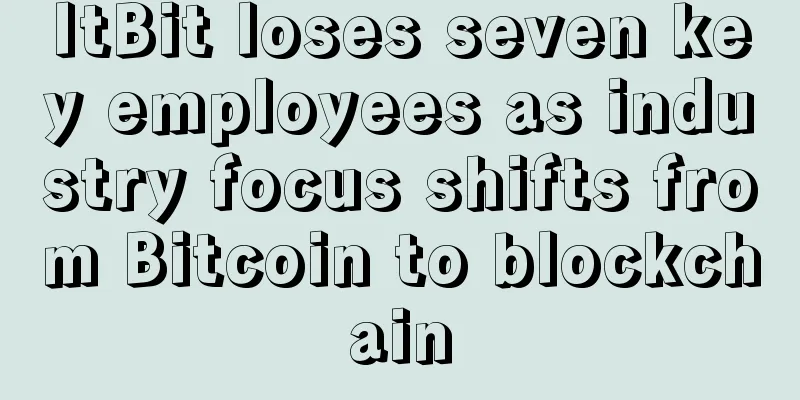Xiao Sa: What is the deeper meaning of the “virtual currency” risk warning in the three cities?

|
Author: Xiao Sa, partner of Beijing Dacheng Law Firm, member of the Complaints (Anti-Unfair Competition) Committee of the Internet Finance Association of China, special researcher of the Industrial Finance Research Base of the Chinese Academy of Social Sciences, and director of the China Banking Law Society. Beijing, Shanghai, and Shenzhen have issued risk warnings for "preventing illegal activities related to virtual currency". People in the industry are speculating whether this activity will be unified across the country; how it will affect the price of the currency; and what should project owners who have already issued the currency and want to do well do? Yesterday, a student asked a related question in an oral lecture, and I will answer it together: Article context: 1. The focus of the investigation is on domestic coin issuance and overseas ICO promotion and sales in the mainland; 2. Or a unified action across the country to prevent ordinary people from blindly following and being trapped; 3. The Internet Financial Risk Special Rectification Group is not a virtual currency regulatory agency. Investigation is important and clear With the development of blockchain technology, the continued influence of Libra, and the stable mining machine business (Canaan Technology went public in the US last night), the blockchain and currency circles are full of vitality. However, my country's legal characterization of domestic currency issuance has not changed at all. If ICO or disguised ICO is conducted in China, Chinese law will identify it as illegal public financing and suspected of illegal crimes. Let me clarify a misunderstanding here. It is not only Ponzi schemes that will be cracked down on; nor is it safe not to touch legal currency (including foreign legal currency). The act of ICO raising Bitcoin and Ethereum is also illegal. When friends in the cryptocurrency circle laugh at Ponzi schemes, they are actually just mocking each other. Judging from the current situation, the legal characterization of ICOs will not change in the next 3-5 years unless there are special variables. my country has always taken a serious attitude towards the "promotion", "traffic diversion" and "agent trading" of overseas ICOs in China. After September 4, 2017, a large number of virtual currency exchanges moved overseas and obtained legal status in the local countries. However, businesses that are legal in other countries may not be legal in our country (please think about the different views on prostitution). However, many exchanges that have moved out of China still have a large number of Chinese people as users (there is no need to deny that). Although on the surface the exchanges will use medium-level KPI technology to exclude Chinese and Americans from buying virtual currencies, in fact they are still constantly tempting people from China and the United States to engage in the "cryptocurrency speculation business." This reminds me of cigarette ads, which dare not advertise a particular cigarette openly but instead create news and promote groups (other sectors) to make people have endless associations, thereby inducing consumers to fall deeply into them and making huge profits from it. Or nationwide unified action The industry also paid attention to a detail. The risk warnings for "virtual currency" in the three cities came from the "Internet Finance Regulation Leading Group" in each jurisdiction. From this, it can be seen that the national level may have been alerted to similar chaos. In order to "strike early and strike small", before a new wave of currency buying craze has formed, it took the lead in attacking, defusing risks in the early stage, and preventing a large number of crowd-related financial cases (a lesson learned from P2P). Further thinking, if it is a unified action across the country, the next step will be to start similar "risk warnings" for the southeast coastal areas and provinces and cities such as Hunan and Hubei where underground exchanges still exist and are partially active. At the same time, we believe that "the law has teeth". After the risk warning, if any project party or personnel dare to commit crimes against the law, they will be severely dealt with by the strike force centered on the public security organs. According to our experience in handling cases, Article 266 of the Criminal Law on fraud will become the main charge, especially for project owners whose projects are progressing slowly and inefficiently, and for brokers who resell the coins for high profits, which can easily lead to criminal risks of fraud. As for virtual currency exchanges, Article 225 of the Criminal Law on illegal business operations will still be used to deal with them. If there is market manipulation (especially with the cooperation of quantitative teams), the more severe crime of fraud will be used to deal with them. It is not ruled out that multiple crimes will be punished together, and the maximum sentence may be life imprisonment. Don't fantasize about erecting a memorial archway Every time I hear friends in the cryptocurrency circle ask: What is the new attitude of our regulatory authorities recently? I feel a sense of regret and sigh. There is no regulatory authority for illegal businesses. The Internet Finance Special Rectification Group is an agency to deal with the chaos of Internet finance, not a supervisory and management agency to promote the healthy development of an industry. In contrast, the P2P industry, which was once the main force of Internet finance, has the "Interim Measures for the Administration of Online Lending" and the Online Lending Division of the China Banking and Insurance Regulatory Commission for supervision and management; while the virtual currency industry has no normative legal documents or regulatory agencies to promote and supervise it. For virtual currencies that can be listed on exchanges for speculation other than non-digital legal tender and Q coins, my country's laws have given a "negative evaluation." In 2013, Bitcoin was recognized as a "specific virtual commodity". In judicial practice, Ethereum is given the same "property attribute" protection as Bitcoin; however, in judicial practice, currencies other than the two mainstream virtual currencies are not truly regarded as "property" but are considered to be just "a bunch of data". It is questionable whether 126 numbers can be combined into a valuable fair commodity. Therefore, in the past year, the charges in currency-related cases have begun to change, evolving from fraud to illegal acquisition of computer information system data. In the future, as society's views on the virtual economy change, the charge may change from illegal acquisition of computer information system data back to fraud (the reason is that virtual currency actually carries the function of accumulating wealth). The above is today’s sharing, thank you readers! |
Recommend
Viewpoint: On the protection of persons whose defects are frozen in telecommunications network fraud
Abstract: In view of the particularity and diffic...
Who will have unexpected fortune according to face reading
Most people can obtain stable wealth through hard...
A man with a small mouth can tell his fate from his appearance. What does a man’s mouth represent?
A man’s small mouth can tell his fate from his ap...
Is it good for a person to walk briskly but not frivolously?
I believe everyone has seen this kind of people, ...
Revealing the secrets of what kind of women will bring bad luck to their husbands
For women who are unlucky in marriage, it can be ...
What does a red forehead mean? How to tell your fortune from a red forehead
What does redness in the forehead indicate? From ...
What kind of palm lines bring good fortune?
Whether one’s fortune is good or not can be hinte...
Dai Jiale: Detailed explanation of the essence, technical architecture and application of IPFS
Last Sunday, Blockchain Catcher held the second C...
Re-use the "shutdown coin price" to calculate the bottom and top of BTC before the reduction in production
After BTC’s short-term surge last month, Bitcoin ...
New York regulator: Signature Bank’s collapse was not due to crypto
Headlines ▌New York regulator: Signature Bank’s c...
Does a mole on a woman's mouth affect her fortune?
Mole physiognomy is an important part of traditio...
What does the size of the finger gap mean in palmistry?
What can be seen between the fingers of the palm?...
Is it good for a woman with big eyes to have a mole under her eyes? Analysis of the facial features of a girl with small eyes
Is it good for a woman to have big eyes? People t...
Why is Qi Baishi considered a master of longevity art?
Qi Baishi (1864-1957), a native of Xiangtan, Huna...
French central bank releases first details of blockchain trial to manage eurozone credit identifiers
The French central bank quietly released new deta...









